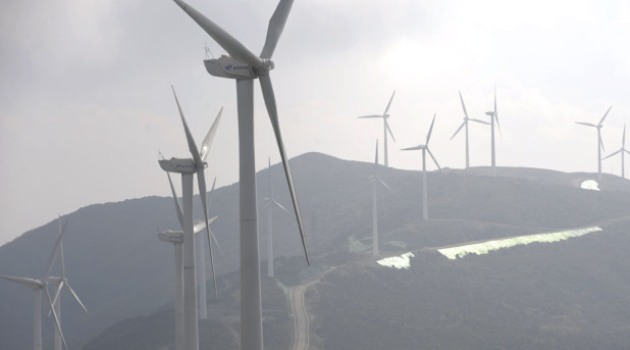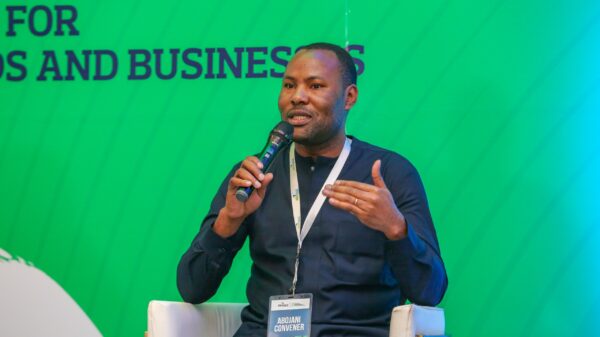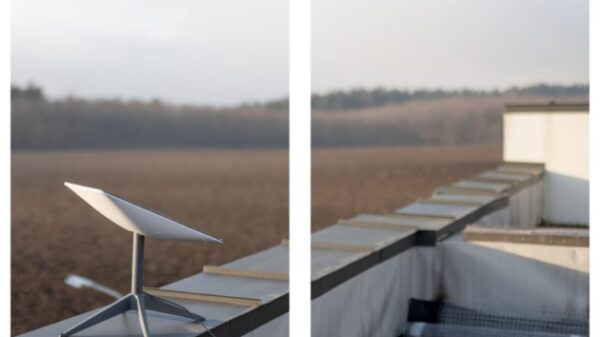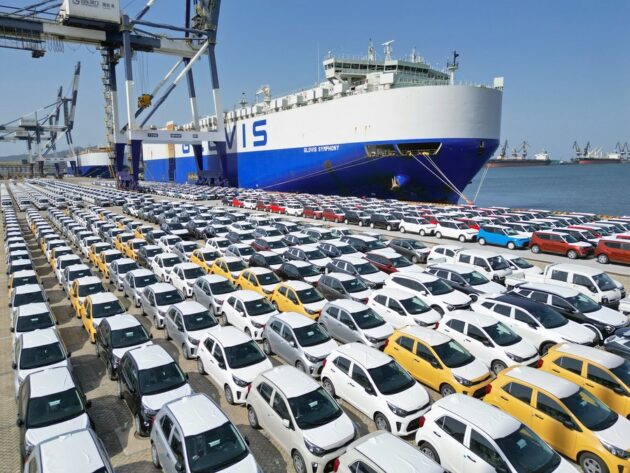NOV 13 – Growth in the UK economy slowed to 0.1% in the July-to-September period, official figures show, as car production slumped.
The figure was below the 0.2% predicted by analysts, and is a blow to Chancellor Rachel Reeves – who has repeatedly said growth is her top priority – less than two weeks ahead of the Budget in which she is widely expected to raise taxes.
The Office for National Statistics said there had been a “marked” fall in car production in September as a result of the cyber-attack on Jaguar Land Rover.
But even when this is taken out, other sectors of the economy showed weak growth.
While there was growth in services – which includes things like shops, restaurants, arts and entertainment and real estate – and construction, it was slower than in the previous quarter.
Consumer spending growth remains weak and economists predict this could continue to weigh on growth for the rest of the year.
The latest GDP figure marks a slowdown from the 0.3% growth seen between April and June, and the 0.7% expansion in the first three months of the year.
In September alone, the economy contracted by 0.1% with the JLR cyber-attack having an impact.
The cyber-attack began on 31 August, and resulted in one of the UK’s largest car makers halting production for five weeks.
The ONS said production output overall fell by 2% in September, and this was mainly caused by a 28.6% drop in car output following the attack.
Some analysts said the weaker-than-expected growth figures had boosted the chance of a rate cut from the Bank of England next month.
Rob Wood, chief UK economist at Pantheon Macroeconomics, said data “all but seals a December rate cut” when added to the weak jobs figures that came out earlier this week.
For some businesses, the slow growth reflects the knock-on effect of last year’s Budget, which raised National Insurance contributions for employers, as well as increasing the national living wage.
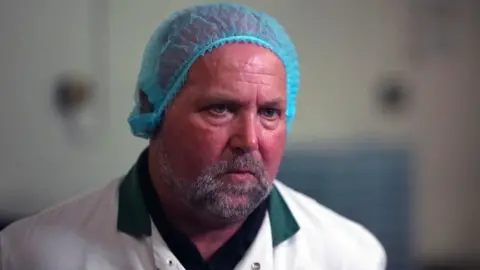
Allan Jones, managing director of pie manufacturer TC Morris, in Dudley, West Midlands, said the cost of running his business, which employs about 50 people, had increased by £200,000 this year.
“I think there’s a level at which people are prepared to pay for a pork pie. So we’ve managed to pass on some increases, but we’ve had to absorb quite a bit,” he said.
Mr Jones said he hoped to “see some easing” from the forthcoming Budget such as lowering taxes and energy costs, as well as increased “support for investment opportunities” in the form of government-backed grants.
Responding to the ONS data, Reeves said the UK had the fastest-growing economy in the G7 in the first half of the year, but said “there’s more to do to build an economy that works for working people”.
“At my Budget later this month, I will take the fair decisions to build a strong economy that helps us to continue to cut waiting lists, cut the national debt and cut the cost of living,” she said.
Shadow chancellor Mel Stride said the prime minister and chancellor were “in office but not in power” and claimed Sir Keir Starmer had “stripped the chancellor of responsibility for the Budget”.
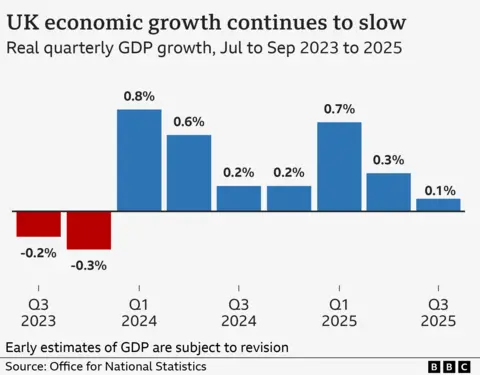
ONS director of economic statistics Liz McKeown said: “There was a particularly marked fall in car production in September, reflecting the impact of a cyber incident, as well as a decline in the often-erratic pharmaceutical industry.
“Services were the main contributor to growth in the latest quarter, with business rental and leasing, live events and retail performing well, partially offset by falls in R&D and hair and beauty salons.”
Ruth Gregory, deputy chief UK economist with Capital Economics, said that even without the drag on GDP growth by the JLR cyber-attack, the economy “is struggling to gain decent momentum”.
“With tax rises in the upcoming Budget likely to trim GDP by around 0.2% in 2026, there is little reason to think that GDP growth will accelerate much from here,” she said.
By BBC







